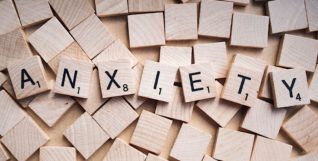
What is Seasonal Affective Disorder?
- January 15, 2017
- Jen Anderson
Getting out of bed is hard enough some mornings. In the depths of post-Christmas winter, when it’s still barely light at 8am, your alarm clock really is a force to be reckoned with.
In fact, you probably won’t be too surprised to hear that 57% of adults in the UK reported lower moods during autumn and winter.
In the same study, almost 1 in 3 people were found to suffer from a condition called Seasonal Affective Disorder, or SAD. Its symptoms are similar to depression: low energy levels, difficulty concentrating, increased appetite and need for sleep, stress, anxiety, etc.
Unlike depression, however, SAD only affects sufferers in autumn and winter.
As mental illness becomes increasingly common in students, it’s worth acknowledging that this time of year can be really hard work for a lot of people. Whether you have full-blown SAD or a mild case of the New Year Blues, there are a few things you can do to make the road to spring a bit less dark and bumpy.
1) Take vitamin supplements
Medical studies now suggest most people don’t need to take multivitamins (sorry, Holland and Barrett). However, the NHS still recommends that everyone takes extra vitamin D during autumn and winter.
Our best source of vitamin D is sunlight, which can be difficult to come by in the depths of northern hemisphere winters – especially if you spend half your time in lecture theatres and the rest in pubs.
Even the biggest night-owls probably don’t have an actual vitamin deficiency, but research suggests that one in five people have less-than-ideal vitamin D levels. If fixing this is as simple as popping a pill every morning, what have you got to lose?
And girls: if you’re prone to heavy periods you might need iron supplements. Excessive blood loss during that time of the month can cause anaemia – a type of red blood cell deficiency – which can make you feel unusually tired.
However, you should always visit your GP before self-treating; anaemia can be diagnosed with a simple blood test and your doctor will know the best course of action.
2) Change your indoor lighting
The light in our environment has been linked to everything from sleep, to emotional well-being, to productivity; so much so that light therapy is often recommended to treat SAD.
Daylight bulbs, which mimic the blue-white light of (you guessed it) daylight, could help lessen the symptoms by affecting hormone production in your brain – just like regular old sunshine.
If you tend to spend a lot of time studying in your room during the day – especially if your room doesn’t get a lot of natural light – you might want to invest in a light box or daylight lamp for your desk.
Though be warned: exposure to this kind of light right before bed might disrupt your body clock and make it difficult for you to sleep.
3) Get some outdoor exercise
If you’re feeling crummy and the weather is grey, going for a run is probably the last thing you want to do. On the other hand, pretty much every self-help guide out there recommends exercise to treat depression, citing both medical studies and personal anecdotes.
The good news is, you don’t have to run anywhere if you don’t want to. Even 30 minutes of walking every day is enough to make a difference.
This could be as easy as taking a longer route to lectures, getting off the bus a stop early, getting lunch somewhere on the other side of campus, or walking back from the supermarket instead of getting a bus.
Besides, if daylight bulbs are good for SAD, actual daylight is even better. Get your exercise outside on sunny days instead of at the gym and you’ll hit two self-care birds with one stone. Take that, birds.
4) Limit your junk food intake
If you don’t spend the entire month of December eating whatever chocolate and party food your family put in front of you, is it really Christmas?
Unfortunately, these delicious foodstuffs have been linked to our psychological wellbeing – and not in a good way. A 2012 study found that people who consumed large amounts of fast food and baked goods (muffins, croissants, etc.) were 37% more likely to end up with depression.
There are a lot of theories about why that is and whether the relationship is cause-and-effect, but a link is pretty well established. No one’s asking you to skip takeaways for the rest of your life, just don’t make them a nightly thing.
5) Talk to someone
SAD isn’t trivial and should be taken as seriously as any other mental health problem.
If your symptoms are prolonged, extreme, disruptive, or if you’re just worried about them – visit your GP. There are plenty of good options for treatment these days, and your doctor will be able to help you decide which is best for you.
If you’re a student, counselling services like CBT and talking therapy will be available through your uni. If not, the NHS can help instead. Neither will cost you a penny.
Your doctor might also recommend anti-depressant medication to curb your symptoms. Since the side effects can be unpleasant, these are usually prescribed if other treatments don’t work or if your illness is very severe and a short-term solution is necessary.
If you want to know more about SAD there are hundreds of resources online: try the NHS, national mental health charities like Mind, or reliable information websites like SAD.org.
And remember, spring is getting closer every day.
Jen Anderson is a Lancaster University alumni, member of The Writing Squad, and show-runner of the current affairs blog On the Fence. She has also recently been published in Foxglove Journal and NowThenMagazine.
Inspiring Interns is a graduate recruitment agency which specialises in sourcing candidates for internships and giving out graduate careers advice. To hire graduates or browse graduate jobs London, visit their website.







